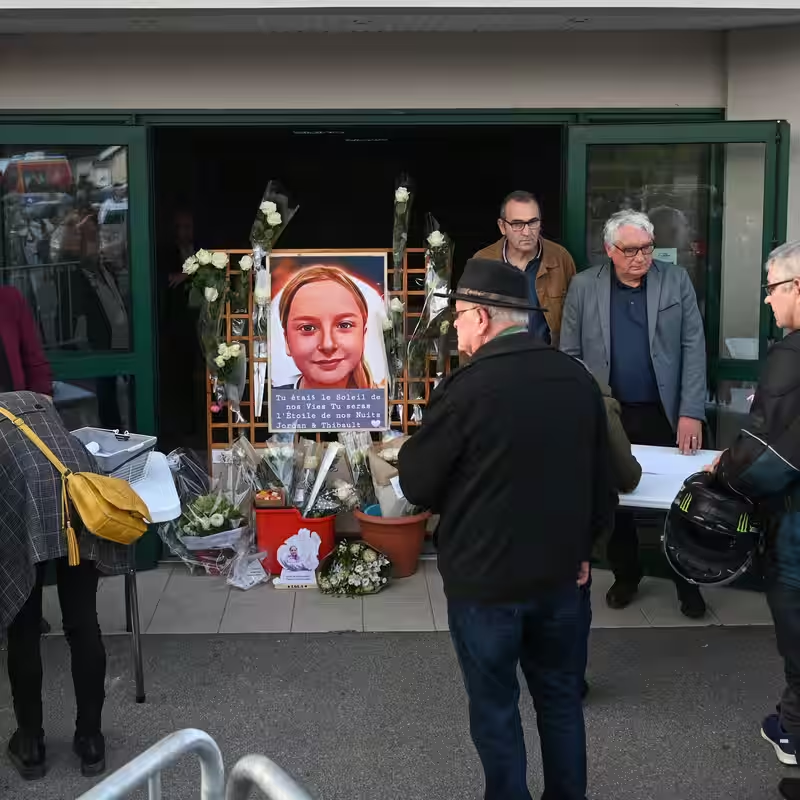Table of Contents
- Case Overview: A Nation in Shock
- Who Is Dahbia Benkired?
- Legal Milestone: France’s First Female Life Sentence
- Political Fallout and Immigration Debate
- Lola Daviet: A Life Cut Short
- What Happens Next?
- Sources
Case Overview: A Nation in Shock
On Friday, October 24, 2025, a Paris court delivered a historic verdict in a case that has haunted France since 2022: the rape, torture, and murder of 12-year-old Lola Daviet. The perpetrator, 27-year-old Algerian national Dahbia Benkired, was sentenced to life in prison—the harshest penalty under French law.
This marks the first time a woman in France has received a life sentence, a punishment previously reserved for the country’s most notorious male criminals, including serial killer Michel Fourniret and terrorist Salah Abdeslam.
Who Is Dahbia Benkired?
Dahbia Benkired was an undocumented immigrant living in northeastern Paris at the time of the crime. Court records show she had been ordered to leave France two months before the murder but remained in the country due to bureaucratic delays in the deportation process.
On the evening of October 14, 2022, Benkired lured Lola Daviet—whose parents were the building’s superintendents—into her apartment. There, she raped, mutilated, and suffocated the child with duct tape. Lola’s body was later discovered in a plastic trunk outside their shared apartment building.
During her weeklong trial, Benkired admitted to the crime but offered no motive. Forensic psychiatrists who evaluated her during pretrial detention concluded she remains a danger to society.
Legal Milestone: France’s First Female Life Sentence
Under the French Criminal Code, life imprisonment is exceptionally rare. Since the abolition of the death penalty in 1981, fewer than 50 individuals have received this sentence. Benkired’s conviction sets a precedent as the first woman to face this ultimate penalty.
French law allows for the possibility of parole after 30 years, but only under strict judicial review. Given the brutality of the crime and expert assessments of ongoing risk, legal analysts believe early release is highly unlikely.
Political Fallout and Immigration Debate
The case reignited fierce political debate over France’s immigration and deportation policies. Right-wing leaders, including Marine Le Pen of the National Rally party, seized on the tragedy to demand systemic reform.
“To protect society from these predators, we must go further: life imprisonment for the perpetrators of these barbaric crimes, followed by the systematic deportation of foreign criminal offenders.”
— Marine Le Pen, National Rally leader
Interior Ministry data shows over 10,000 deportation orders remain unexecuted annually due to legal appeals, diplomatic hurdles, and resource constraints—a fact now under intense public scrutiny.
Lola Daviet: A Life Cut Short
Lola was described by teachers and neighbors as bright, kind, and full of promise. Her death sparked nationwide vigils and a wave of grief that transcended political divides.
Outside the courthouse, Lola’s mother, tearful but resolute, told reporters: “Even if this won’t bring my Lola back, we believed in justice and we got it, we got it. Thank you.”
A makeshift memorial with flowers, candles, and photos still stands near the family’s former building—a silent testament to a community’s loss.
What Happens Next?
Legal experts anticipate the case will influence future sentencing guidelines for violent crimes, particularly those involving minors. Additionally, the French government has signaled a review of deportation enforcement protocols, though no formal policy changes have been announced.
Meanwhile, victim advocacy groups are calling for stronger protections for children and faster judicial processing in cases involving undocumented offenders.




